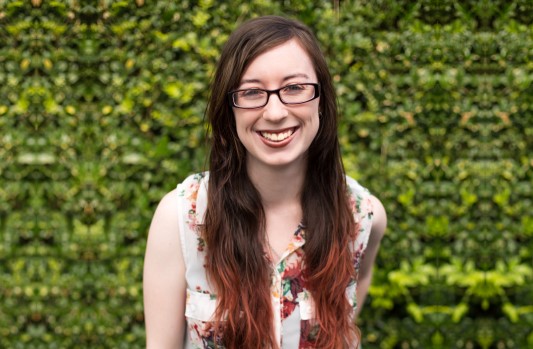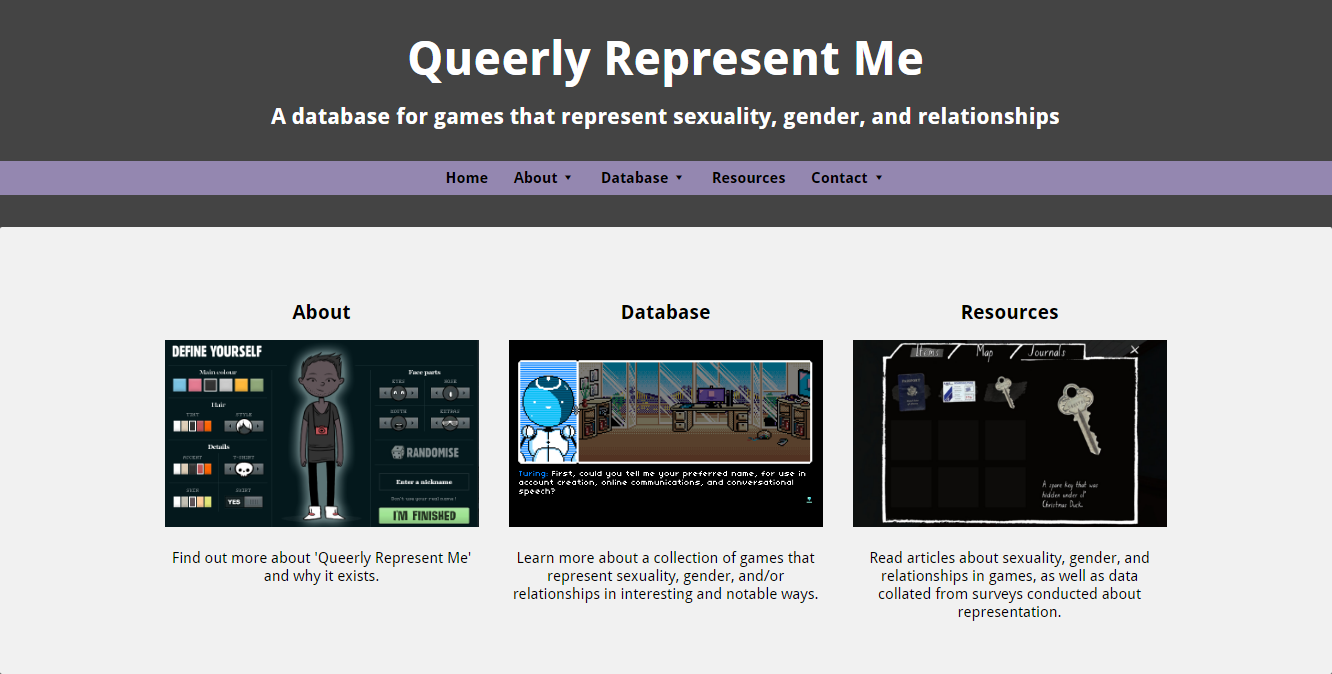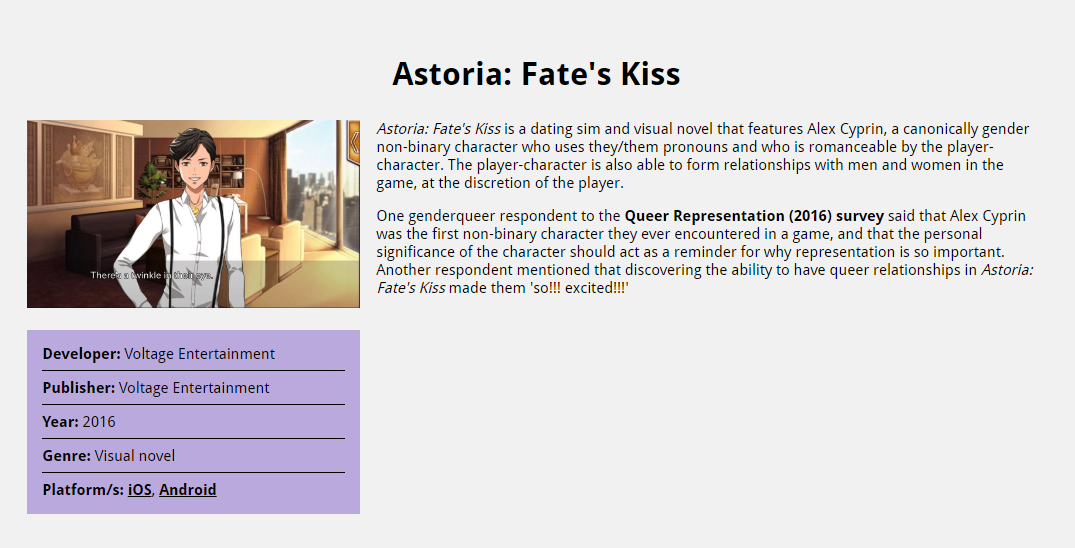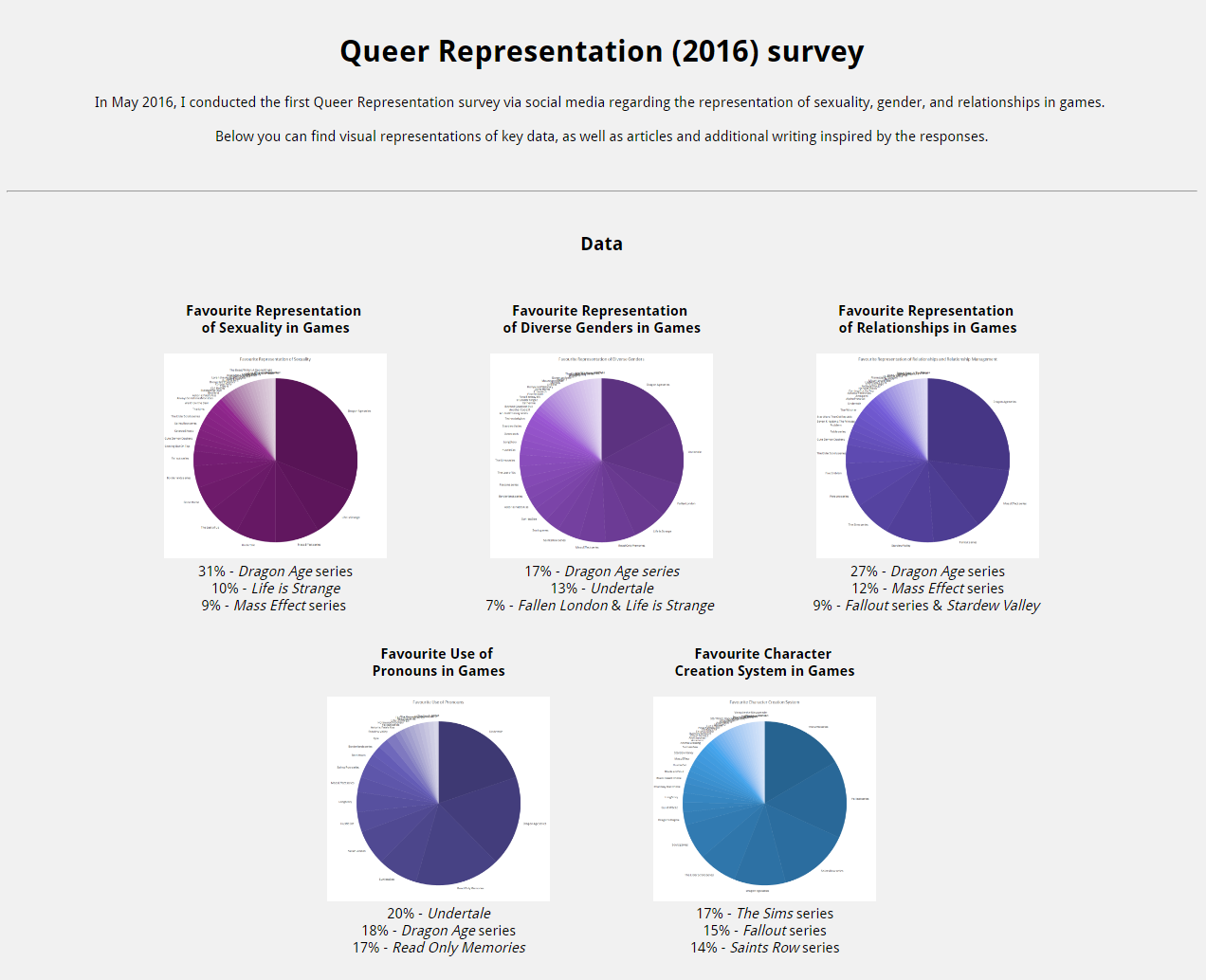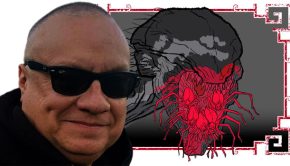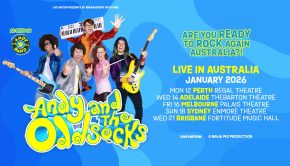Alayna Cole Interview (Gaming & Sexuality, Gender and Relationships)
Impulse Gamer catches up with Alayna Cole writer, editor, creator, academic and gamer to discuss her new website and current research into Gaming & Sexuality, Gender and Relationships.
How did you become involved in gaming?
This is a big question to start on! I became involved because my parents introduced me to games (of all varieties) at a young age. I remember playing boardgames with them, and being introduced to things like Tetris on their Gameboy and the Might and Magic franchise on PC. In terms of working in games, it’s been a step-by-step process facilitated by a lot of generous and encouraging people. I’ve had opportunities writing for and about games, developing games myself, teaching game design, and researching games academically, and each area of involvement has its own story! I’m well and truly tangled up in this world now, and I love it.
Growing up, what was your first love when it came to video games?
My first love was probably not the videogames themselves, but the contextual narratives that surrounded them. These interactive, collaborative experiences allowed me to stretch my imagination and have fun with my family, and games continue to play that role between me and my partner, friends, and colleagues. I have always loved stories, and games were just another type of exciting story I could engage with.
Could you tell us a little about your background when it comes to research?
I have never quite stopped academic work and research, heading straight from high school into dual undergraduate degrees, and then upgrading my way through an honours and masters until finally turning those partially finished projects into the doctorate I’m working on now. My doctorate is about queer representation, but isn’t about games at all; I’ve recently started publishing papers in game studies because I feel comfortable discussing the topic and want to lend my voice to this burgeoning field.
You’ve been an advocate for queer representation in gaming, tell us what made you fight for this cause?
The obvious answer to this question is also quite a selfish one: I want to see more people like me in the games I play. I have done a lot of research into representation of gender through a feminist lens, and I am passionate about positive representation of women in games, but this is an area that is already being championed by some amazing, accomplished people. The voices calling for more queer representation in games are fewer, and those researching this representation (or lack thereof) in an academic capacity are fewer still. It was about finding a niche where my personal passions and motivations could meet my academic and professional direction, and here we are.
How did you research so many games that support positive sexuality, gender and relationships?
With a lot of time, patience, and perseverance. The entries in the Queerly Represent Me database that I founded—as well as the lists of resources and other materials—have all been written or collated by me. There are now greater than 700 games in the database, and all the information about these titles has been entered by hand (often in the early hours of the morning). Initially, the information came from my haphazard reading in the area, as well as a survey that I conducted in May 2016; the responses from this survey can be found throughout the database and formed a foundation for what Queerly Represent Me has slowly become. As the database grows, I’ve started receiving more tips via email and Twitter by researchers and other interested members of the community, which have definitely helped with the time it takes for me to research titles myself; however, it is still quite a slow process of data entry.
Are you surprised with the lack of positive representation in mainstream gaming?
I’m definitely not surprised. It’s something I’ve noticed for a long time, particularly when I began studying English literature and couldn’t stop analysing everything around me. And there isn’t just a lack of positive representation in terms of queer identities; all minority social groups experience this, including race, gender, able-bodiedness, and a range of other areas. I have chosen to focus on queer representation because of my personal investment, but that certainly doesn’t mean these other areas aren’t also incredibly important.
During your research, did you come across any surprises?
There are many more games that feature queer representation in some form than I first realised. I never would’ve suspected that the database would have greater than 700 entries, with more being added constantly. Admittedly, many of these games are not examples of good representation, or only feature passing references, but queer identities have definitely been present for longer than I thought. As a result, my mission has become less about advocating for more representation, with my focus shifting to improving the quality of that representation.
What were the main themes from your research?
I’ve found many themes and trends in my research so far, but it definitely isn’t over yet; these preliminary observations are acting as the foundation for ongoing academic and journalistic research. I recently spoke at the Digital Games Research Association of Australia conference about some of the trends I’ve identified, such as the focus on same-gender relationships in current representations, the reliance on stereotypes and behaviour, the use of optional queer content or playersexuality, and issues with gender representation in character creation systems.
For you, what do you think the top five games are that promote equality in gaming?
This is a tricky question because ‘promoting equality’ can mean a lot of things. It’s important to make and discuss games where queer issues and characters are central, but games where queer themes are normalised through incidental (but still positive) inclusion are equally important. Some games might focus solely on authentic, nuanced representation of a particular identity, and those are just as necessary as games that attempt to represent a cross-section of identities. That said, here are five games that I believe approach representation of queer identity in noteworthy ways:
The Borderlands franchise features a diverse cast of NPCs with various sexualities. Moxxi and Mr Torgue are bisexual, Sir Hammerlock has ex-boyfriends, Tiny Tina is attracted to Maya and Moxxi, Maya and Axton are both asexual, and Athena and Janey are in a same-gender relationship. Some of these identities are explicitly included in the games through sidequests and dialogue, while other implicit representations have been confirmed by developers via interviews and Twitter. Diverse genders are also hinted at in the franchise, with Zer0 being referred to with gender-neutral pronouns outside of the games.
Read Only Memories makes deliberate attempts to incorporate varied identities, allowing the player to select from a range of pronouns (or input their own) during character creation, and engage in meaningful dialogue about identity with NPCs.
Undertale features incidental representation of gender ambiguous characters, as well as a nuanced same-gender relationship between women.
Gone Home features a specific representation of sexuality, demonstrating the issues that can be associated with self-discovery during adolescence.
The Sims 4 gave its character creator a major overhaul earlier this year in an attempt to include more gender diversity. Although you still can’t create a gender non-binary character, there is scope for designing authentic transgender characters now, in addition to exploring sexuality through the game’s relationship systems.
Many other games that represent queer identities in interesting ways were identified in the results of the Queer Representation (2016) survey.
Also, for people wanting to become involved in your research and advocacy, where should they start?
I’m always looking for community input to help make Queerly Represent Me even better. Any suggestions of new games or more information about games already in the database are very helpful. I also include quotes about people’s personal experiences with representations, so if a particular game has resonated with a reader and their identity, I’d love to hear about it. There is always the option for people to financially support my work and research via Go Fund Me, or to help by spreading the word about the importance of representation by sharing my research via their networks.
Last but not least, what will 2017 hold for you Alayna?
I have some upcoming academic papers about queer representation and Queerly Represent Me organised for early next year that will be co-authored with other game studies scholars in similar research areas. I hope to facilitate another survey through social media about queer representation, and the responses will lead to further independent journalism and academic research. There should be a very exciting game release coming out of my studio, Horned Llama, early in the year as well!


